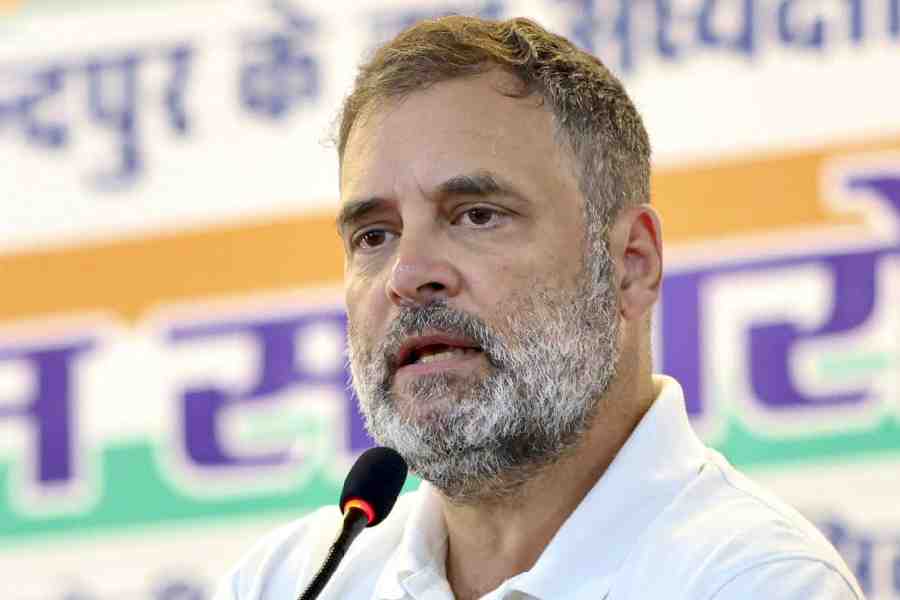 |
| People who are not mentally tough suffer greater stress |
Mental toughness is a concept more commonly associated with sporting heroes than desk-bound office managers and employees. Professor Peter Clough — who is a chartered sports psychologist as well as an occupational psychologist — has now applied the notion to the workplace, where its fans claim it is raising the game of individuals as well as teams.
Clough links low mental toughness with poor work performance and has developed, in collaboration with the psychometric testing company AQR, a questionnaire (the MTQ48) that provides the world’s first occupational measure of an individual’s mental toughness, on a 1-10 scale.
Clough and AQR’s managing director, Doug Strycharczyk, have also collaborated on a programme that they claim can develop mental toughness in employees, raising both their individual and their organisation’s performance.
David Horsler, Salford city council’s assistant director of HR, said MTQ 48 and the development programme had been instrumental in elevating the council — judged a weak performer two years ago — to a three-star organisation.
A handful of local authorities, the Merseyside careers service Connexions and the Highways Agency are among the other public-sector bodies that have used the programme to improve performance. The car-component company Decoma is among the private-sector firms to have benefited from the system.
Clough thinks that until recently the idea of measuring individual mental toughness and connecting it with performance would have been too politically incorrect to get off the ground.
“Even five years ago I would have been seen as a bad man for coming up with this,” said Clough, head of psychology at Hull University. “Since the 1960s, the focus in workplace psychology has been on the performance of teams. There was distaste for concentration on individual performance and to some extent there still is. I believe in looking at teams but I also believe teams can be used to hide poor individual performance.”
Clough also claims that mental-toughness levels affect an individual’s perception of stress and even their perception of whether they are being bullied. The “mentally sensitive” — note the avoidance of mental toughness’s more obvious opposite, mental weakness — are more likely to be stressed and to feel they are being bullied.
This kind of view is unpalatable in some quarters because of its emphasis on individual, not organisational responsibility. “Of course, there are situations where bullying is real and extremely nasty,” said Clough. “However, sometimes people see themselves as being bullied when really that’s not the case.”
Clough claims that some people are simply naturally mentally tough. They do not let failure or mistakes affect future performance while the mentally sensitive tend to crumble after failure, allowing setbacks to blight future performance.
Clough also argues that the 21st century is not any more stressful than the centuries that have gone before. “How can we say that working down a coal mine or being bombed during the war was less stressful?” he said. “I think people have just become less able to deal with stress. We have become overly focussed on the avoidance of stress rather than seeing it as something to be dealt with.
“Sometimes jobs are high pressure and you have to select people with the mental toughness to deal with that or develop it in them.”
Clough’s questionnaire is based on the four components he claims comprise mental toughness — control (high scorers believe they control their destiny while low scorers believe destiny controls them), commitment (high scorers stick at things, low scorers walk away), challenge (high scorers see a test as a chance to shine while low scorers fear an opportunity to fail) and confidence (high scorers have high levels of belief in their abilities, low scorers don’t). Clough is sure this measures something real in the human personality. He has compared questionnaire scores against colleagues’ perceptions of the people questioned and found a high correlation between the scores and how mentally tough the scorers were perceived as being by others.
Greater Merseyside Connexions deployed the questionnaire and development programme after it was formed from the stressful merger of four careers services. Thirty members of the management team filled in the questionnaire and did the two-day development programme.
Kieran Gordon, Connexions’ chief executive, said the AQR mental toughness system gave his organisation “a great insight into organisational and individual stress levels and tolerances” and equipped him and his managers with individual techniques to manage stress.
He said they worked on the basis that not all stress was bad. Where it was possible, the stress was taken out of internal systems but individuals also learnt about their own strengths and weaknesses and how they could improve performance.
“Individuals came out of the mental-toughness development programme feeling they had techniques to help them organise their work better,” said Gordon. “There are lots of elements of time management in there.”
Gordon said the programme also led Connexions to understand that managers were feeling swamped by day-to-day responsibilities and felt unable to look further down the road to understand the direction in which the organisation was going.
But did the programme shine too bright a light on the lack of mental toughness in some managers who weren’t able, or didn’t want, to toughen up? “One or two have left,” Gordon admitted.
Perhaps surprisingly, Connexions has not remeasured the mental toughness of managers to quantify any change. Gordon jokes that he didn’t want to add to their stress, but at some point he will test managers again.
Meanwhile, he points to a drop in absenteeism at all levels of the organisation, including managerial, as an indication that stress levels are down and that the programme worked.











